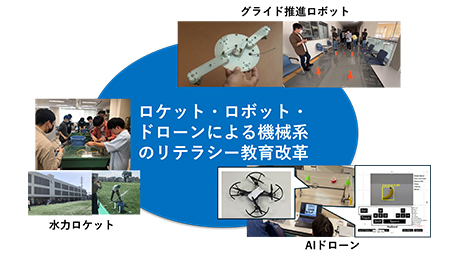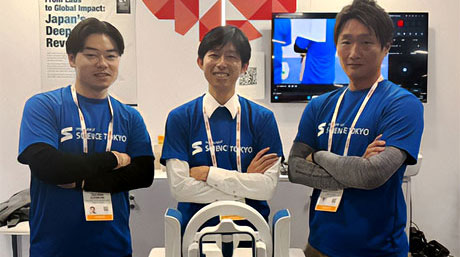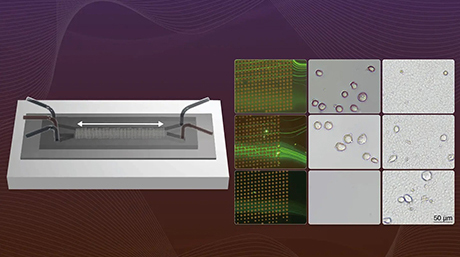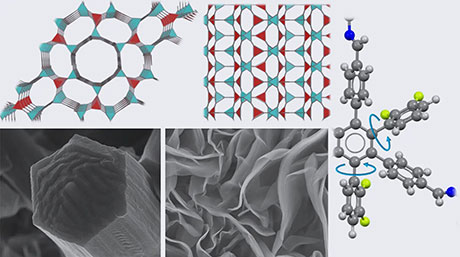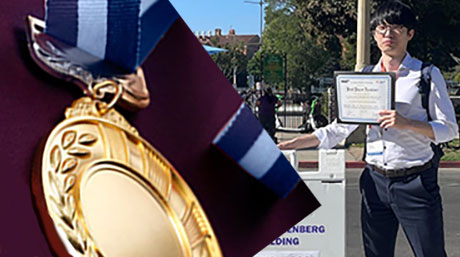Mechanical Engineering News
Assoc. Prof. Wataru HIJIKATA selected for Special Award for Tokyo Tech Advanced Researchers【STAR】 in FY2023
Associate Professor Wataru HIJIKATA of the Department of Mechanical Engineering, the School of Engineering and Associate Professor Masaki UCHIDA of the Department of Phisics, the School of Science have been selected for the Special Award for Tokyo Tech Advanced Researchers【STAR】grant in FY2023.
By utilizing the Tokyo Institute of Technology Fund, we provide large-scale grants to young researchers grappling with research topics that have the potential to become national projects in the future and to those who have achieved distinguished results in the fundamental sciences. The fund is designed to support these rising stars of the next generation.
Based on their career and research achievements, recipients are selected by the president and the director of the Office of Research and Innovation. Individuals cannot apply for this grant.
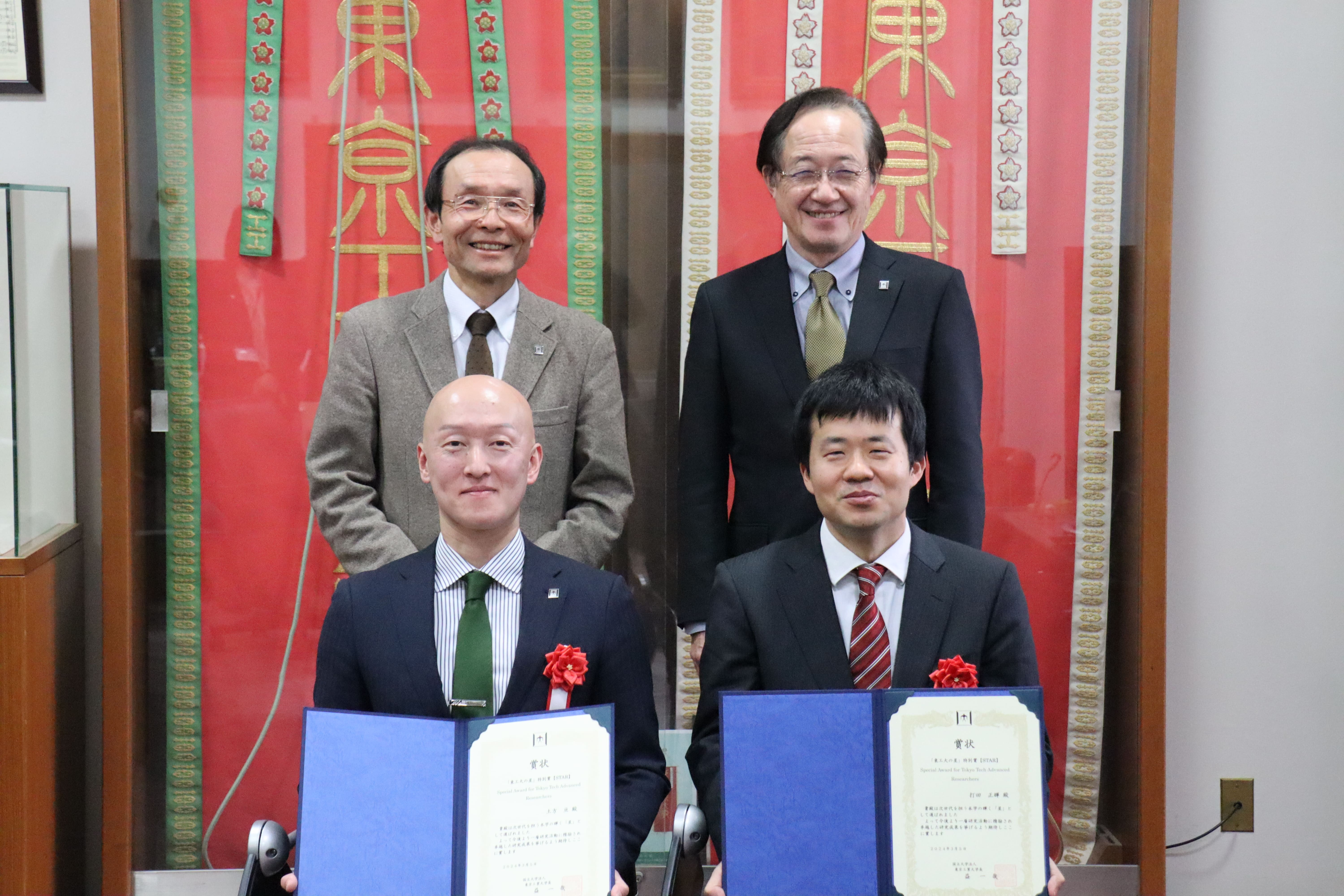
(Front row from left)Assoc. Prof. Wataru HIJIKATA, Assoc. Prof. Masaki UCHIDA
(Back row from left)Executive Vice President for Research Osamu WATANABE, President Kazuya MASU
Research overview and Researcher Comment
Wataru HIJIKATA
Associate Professor, School of Engineering
Research overview:Study on ventricular assist device and engineering application of biological tissues intended for integration of human and machine
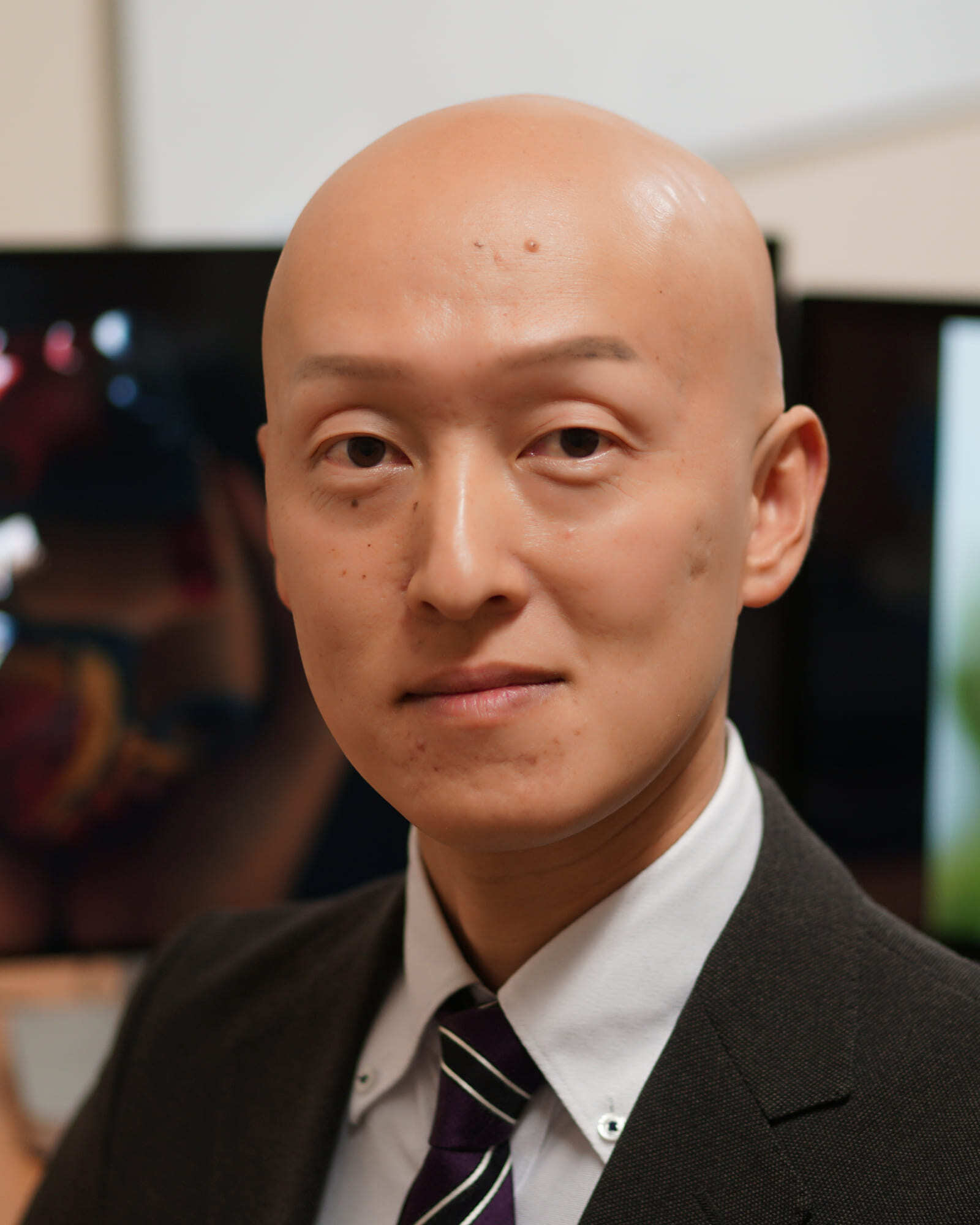
With the development of medical technology, the average life expectancy of the human population has increased significantly over the past 200 years. However, healthy life expectancy, which is defined as the period during which people can live without being restricted by health problems, is shorter than the average life expectancy, with a gap of about 10 years in Japan. From this background, I believe that there is a need to develop science and medical technology that will provide the foundation for people to lead enriched lives, not only by extending average life expectancy, but also by extending healthy life expectancy and improving quality of life. In my research, I am conducting research on ventricular assist devices used in the treatment of patients with severe heart failure, based on the concept of integrating humans and machines to realize medical technology that enables people to live like healthy people even in the event of illness. Since conventional ventricular assist devices generate a continuous flow at a preset motor speed, the flow rate cannot be increased or decreased according to the patient's exercise condition, and the risk of thrombosis is increased due to the loss of the pulsatile flow. Hence, I am developing a ventricular assist device that can control heartbeat synchronization according to the timing of the heartbeat by using electromagnets used in the ventricular assist device to estimate the beating of the diseased heart in real time. As another approach to the integration of human and machine, I aim to create novel medical and welfare devices such as power-assistive suits that can repair themselves in the future by utilizing biological tissues such as skeletal muscles. In particular, I am now developing technologies to realize the design and control of biological tissues using engineering methods.
Researcher Comment
I am very honored to have been selected for the "Special Award for Tokyo-tech Advanced Researchers [STAR]" program. I would like to express my sincere gratitude to all the contributors and selection committee members of the Tokyo Institute of Technology Fund. This research cannot be done by me alone. I would also like to take this opportunity to thank my collaborators and laboratory members. With this support, I will continue to promote challenging research.
- Special Award for Tokyo Tech Advanced Researchers【STAR】|Awards &Research Funding Support|Research Support Activities|Office of Research and Innovation
- Office of Research and Innovation
- Reseracher Information(STAR Search)- Wataru Hijikata
- Okada and Hijikata Laboratory(in Japanese)
- Swiss-Japan Research Collaboration for New Innovation in Medical Engineering workshop held|Tokyo Tech News
- Engineering Sciences and Design Graduate Major|Education|Department of Mechanical Engineering, School of Engineering
- Mechanical Engineering Graduate Major|Education|Department of Mechanical Engineering, School of Engineering
- Mechanical Engineering Undergraduate Major|Education|Department of Mechanical Engineering, School of Engineering
